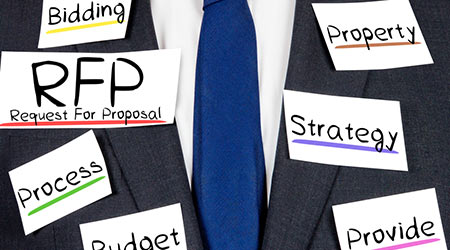
While it can vary, often facility managers as well as large contract cleaners take bids - request for proposals (RFPs) - from suppliers and distributors after the first of the year for purchasing supplies.
While some managers/contractors are very familiar with this process, others are not, and mistakes can happen. This makes the process much more cumbersome and in worst case scenarios, skew the bidding results, which can prove costly.
Here are eight pointers from AFFLINK, a sales and marketing organization for the professional cleaning, food service, healthcare, and related industries, to help managers and contractors avoid this:
1. Allow plenty of time to prepare your RFP. The more thorough and concise they are, the easier it will be for suppliers/distributors to work with.
2. Have a list of up to ten suppliers/distributors you are interested in working with.
3. If the RFP is complicated or involve larger facilities, it is often a good idea to have a pre-bid meeting with all suppliers.
4. Make sure all suppliers receive identical RFPs, and if any changes are made during the bidding process, those updates are delivered to all vendors.
5. Make sure the RFP says who is to receive the proposal and when all proposals are due.
6. Give suppliers enough time to complete their proposals. Usually, two to four weeks is sufficient, and if the deadline is extended for one supplier, it must be extended to all suppliers.
7. If a site visit or walk-through is required - provide two dates when these will be conducted.
8. Make sure supplier proposals are signed by an officer of the company.
Once the proposals are received, "take the time to evaluate them," says Michael Wilson, vice president of marketing at AFFLINK. "To narrow the field, weed out those that did not provide all the necessary information and be wary of low bidders. Very often they simply did not understand your requirements."

 The Down and Dirty on Cleaning in Virus Season
The Down and Dirty on Cleaning in Virus Season How Surfactant Use is Expanding in Commercial Cleaning
How Surfactant Use is Expanding in Commercial Cleaning Clean Buildings Conference
Clean Buildings Conference